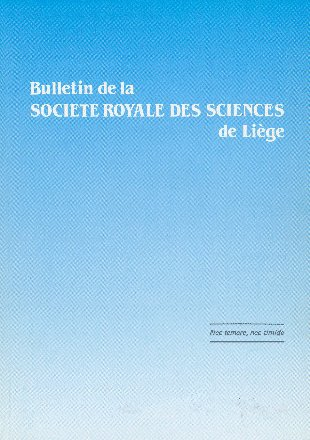- Accueil
- Volume 84 - Année 2015
- Actes de colloques
- Workshop d'astrochimie expérimentale
- Laboratory experimental simulations: Chemical evolution of the organic matter from interstellar and cometary ice analogs
Visualisation(s): 1638 (7 ULiège)
Téléchargement(s): 1852 (1 ULiège)
Laboratory experimental simulations: Chemical evolution of the organic matter from interstellar and cometary ice analogs

Document(s) associé(s)
Version PDF originaleAbstract
This contribution addresses the different approaches that are developed in our laboratory to study the chemical evolution of organic matter in stellar or interplanetary environments. In the first approach, starting from interstellar or cometary ice analogs subjected to different energy processes (thermal, photochemical), we aim to explain the mechanism of formation of key molecules (RING project: Reactivity in INterstellar ice Grains) such as HMT, POM or amino acid precursors that are or may be detected in future space missions. In a second approach, we are interested in the detection of volatile molecules sublimating from ice analogs when these latter are heated and/or irradiated (VAHIIA project: Volatile Analysis from the Heating of Interstellar Ice Analogs) through an online experimental device coupling the simulation chamber where ices are formed to a GC-MS instrument. The objective is thus to simulate the effects of the ice material warming when a young star forms or when a comet becomes active. This project provides an inventory of molecules that can be found in hot corinos or in the gaseous phase of comets. In a third approach, we analyze the organic matter contained in the refractory residues that can be considered as cometary analogs (RAHIIA Project: Residue Analysis from the Heating of Interstellar Ice Analogs) using very high resolution mass spectrometry (VHRMS). The results of these analyses show that residues present an important molecular diversity. This technique gives also the possibility to determine the elementary composition of these residues that can be compared to the meteorite composition. These residues can then be a basic material to develop, in a specific planetary environment, a prebiotic chemistry.






